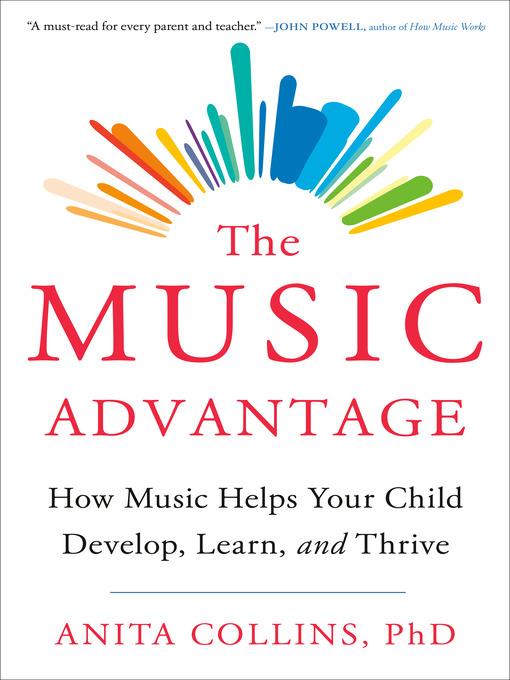
The Music Advantage
How Music Helps Your Child Develop, Learn, and Thrive
- اطلاعات
- نقد و بررسی
- دیدگاه کاربران
نقد و بررسی

February 1, 2021
As Collins watched the end-of-the-year presentations at the school where she taught music, she noted that, year after year, seven to eight of the 10 prizewinners in all academic subjects were highly involved in music. Curious, she sought to answer the question whether learning music helped with other academics or if those who were doing well academically were drawn to music. In her research, she traveled the world and spent time studying the physiological structure of the brain itself to learn about development. She learned babies hear their mother's voice as if it were music and the brains of musically trained adults seemed to both look and function differently than their nonmusically inclined counterparts. One finding: musically adept participants used less brain activity to complete a task. Collins's chapters cover brain development and music from babyhood through the adult years. She includes personal anecdotes from her own childhood; as a child who struggled to learn to read, she excelled in music, and as she learned to "read" music, words weren't far behind. VERDICT Though a slow read at times, this title shows the value of music education on brain development and includes practical tips for harnessing melody and rhythm to increase learning in all areas.
Copyright 2021 Library Journal, LLC Used with permission.

February 1, 2021
Most people intuitively know that music has value but cannot articulate why. Here, Collins explains many of the scientific reasons why learning music helps develop the brain. The book's four sections discuss music's effects on child development from birth to late adolescence, and each chapter brims with information useful to both caregivers and teachers. She asserts that babies' first sounds are music, a precursor to language. Experiments suggest that music makes babies more empathetic. Cluttered sound environments inhibit auditory processing, which further affects language learning. Collins asserts that music learning--especially learning to keep a beat--has direct correlations with language learning. Children who struggle with reading often improve when they learn to make music. Even if one doesn't learn music as a child, new studies show that ""musically trained adults appeared to have better memory creation, storage and retrieval systems."" Readers will appreciate that Collins is both a scientist and a music conductor. In other words, she's the real deal, and her writing style, like the many analogies she uses, is straightforward and clear.
COPYRIGHT(2021) Booklist, ALL RIGHTS RESERVED.




دیدگاه کاربران